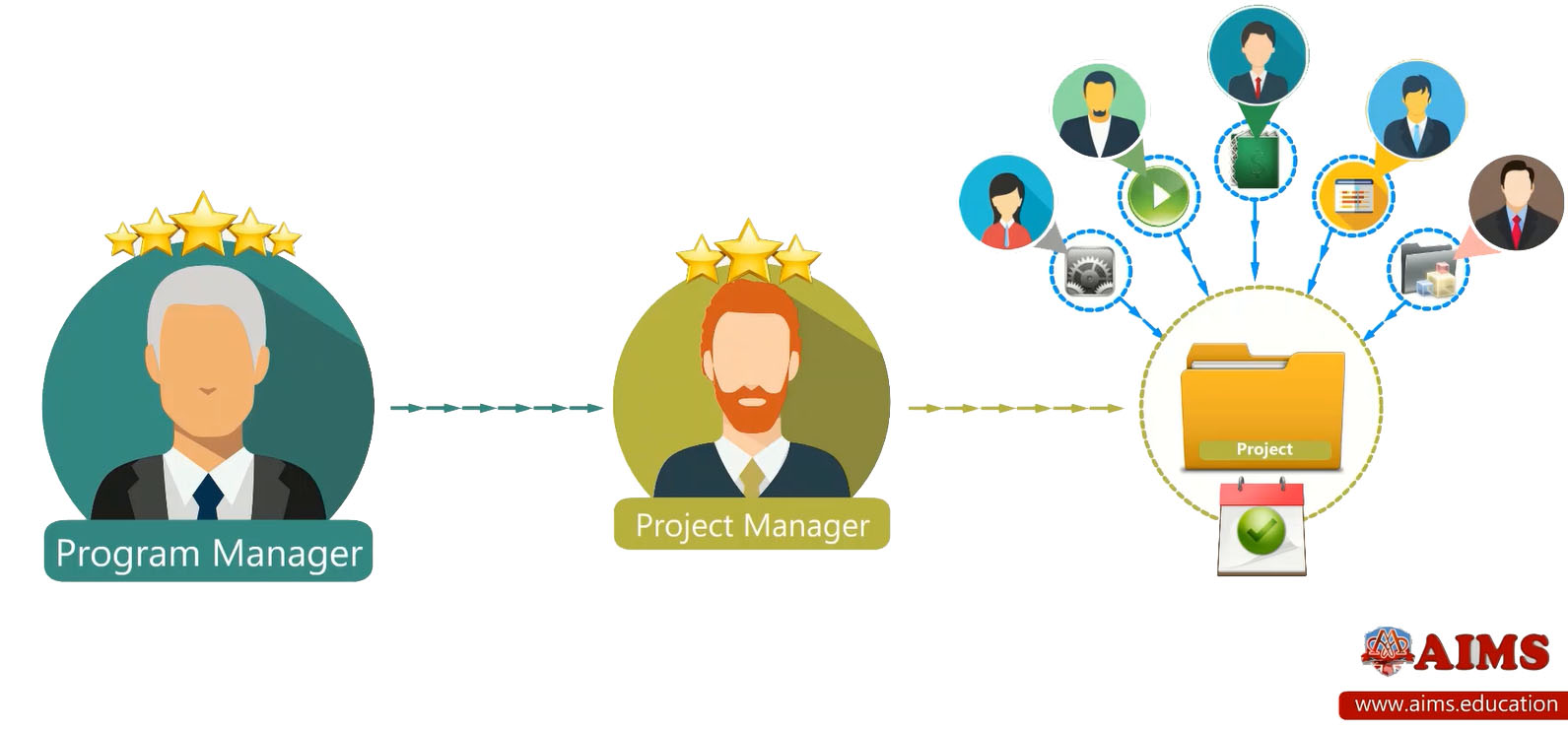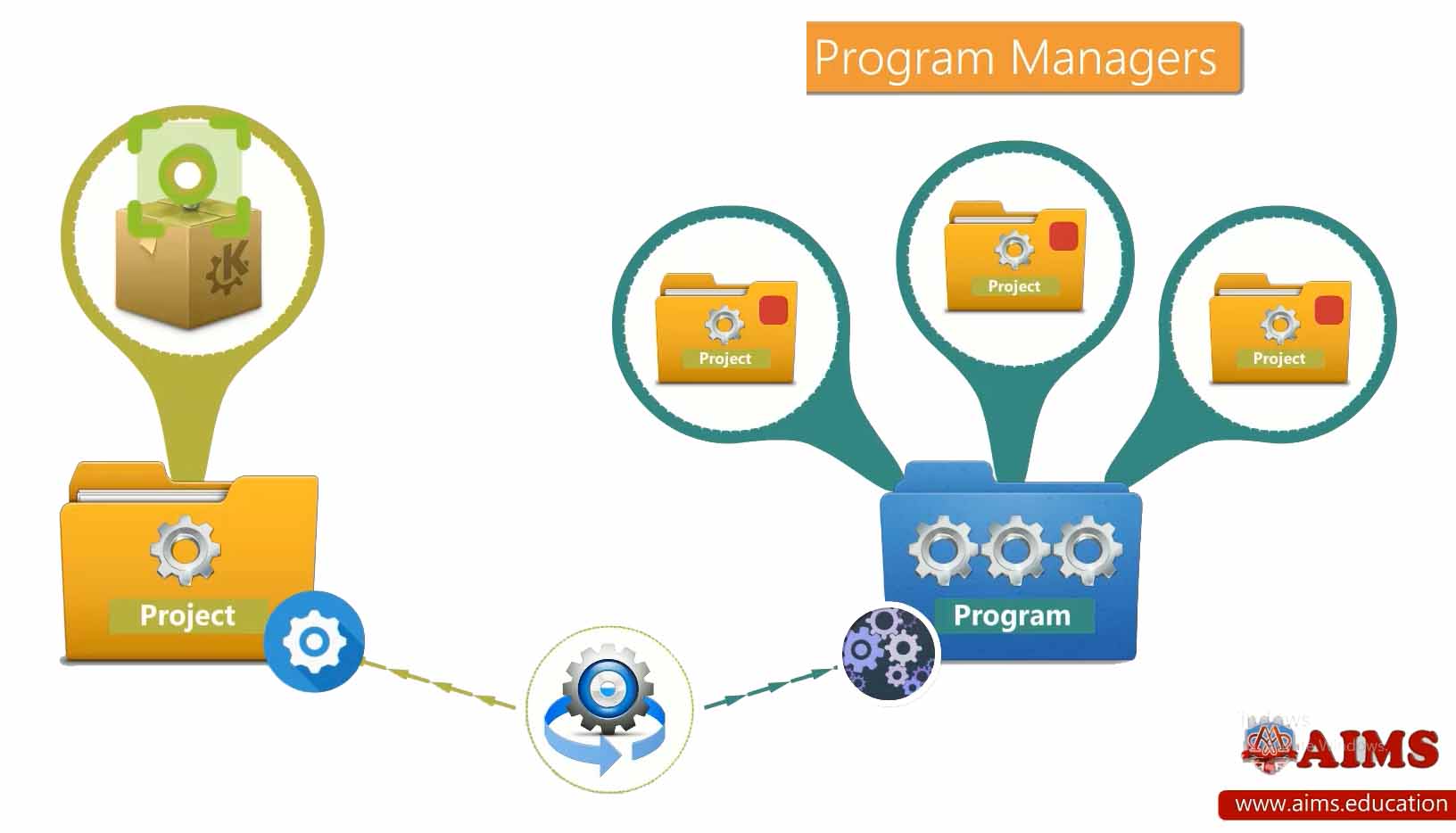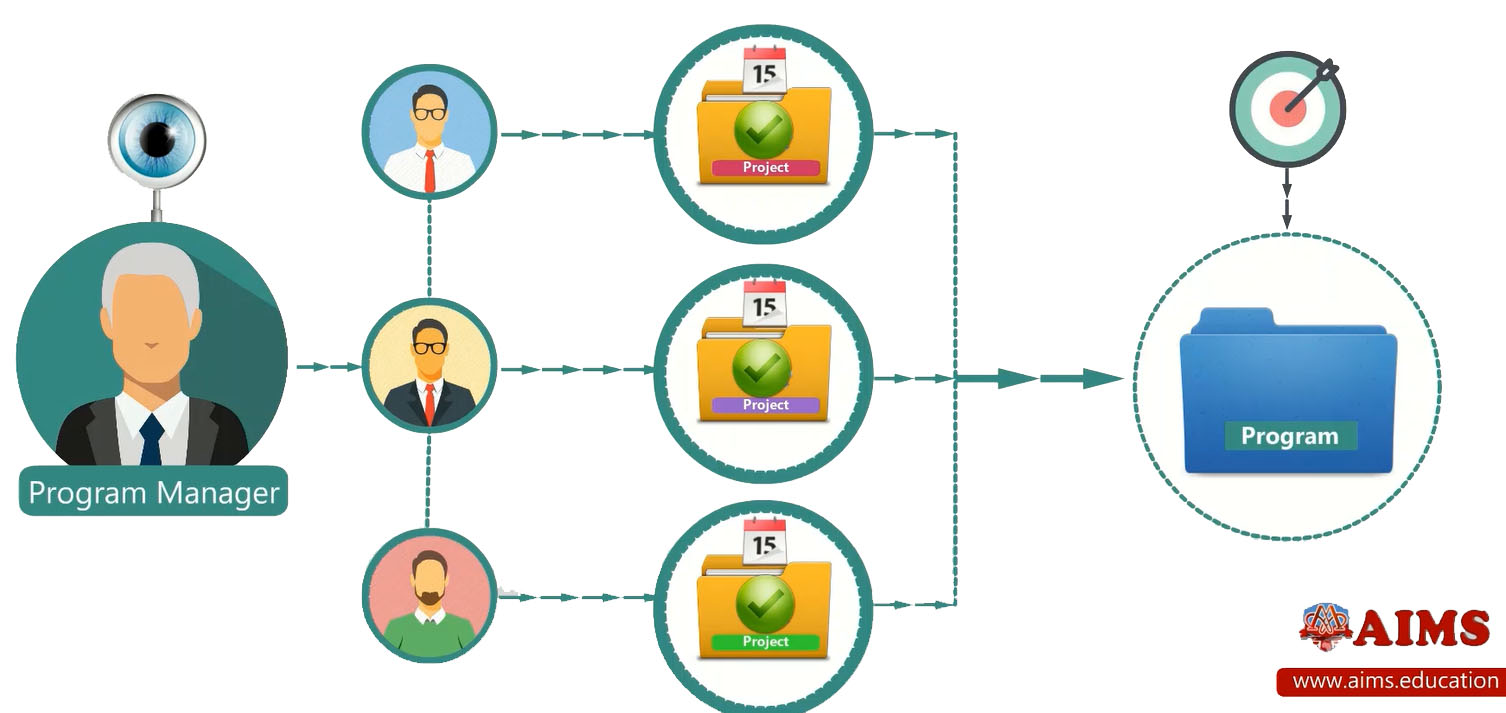Difference Between Project Manager and Program Manager
As project management continues to evolve, new roles and positions have emerged to handle complex and large-scale projects better. These roles include program management, project portfolio management, and project management office. While there are similarities between project and program managers, there are also many differences between project manager and program manager. Both roles require similar management styles but have different overall objectives. Thus, the program manager vs project manager dynamic is in place.
Program VS Project
A project is a singular effect that is focused on a concept or product while a program consists of several projects that fall under the same department. This means that running a program is far more complicated than overseeing a single project which means that different skill sets and objectives apply when it comes to managing the overall effort.
To put it another way, a project is a temporary effort that has a singular goal while a program is several projects grouped together because of their general similarities.
What is Program Manager?
The Program Manager is the leader of a department or section that oversees several projects that fall along the same general lines. So, someone who is head of marketing for a company would be a program manager running the different projects that fall under the advertising campaigns. Their job would be to define and initial the projects necessary to reach a specific goal for an overall program. They choose the leaders of each project, focus on the overall strategy, and make sure that the projects are completed by the deadline.
What is Project Manager?
A project manager runs the individual project under the program manager. They help set up, initiate, and budget the time and resources needed to complete the project on time. They also delegate tasks within the project to different people. If a program manager is a General, then the project manager is a Captain or Major leading a smaller force within the larger organization.
An Example
A marketing campaign may be considered a program that promotes several different projects including traditional media, promotions, social media, public relations, and more. It may be related to several project management industries.

Program Management VS Project Management
When projects are managed collectively, it is called Program Management. There are many benefits of managing programs, instead of managing several projects individually. For example, it is economical to group projects to help streamline management, staffing, purchasing, and other work.
Program Management Examples
Program management may be elaborated further with the following examples:
Example of a Program: Construction Company
Building a new shopping mall is a program. Many sub-projects exist underneath this program management, such as construction, interior design, store placement, marketing, finance, etc. Each of the sub-projects is a project unto itself. Each sub-project has its own project manager, who reports to a program manager
Example of a Program: Government Agency
A government agency has a program for children’s services, which may include the following 3 individual projects:
- Provide prenatal care for expectant mothers,
- Immunize newborns and young children, and,
- Developmental testing for preschool children.

Program Manager VS Project Manager
Let us examine their 23 work-specific roles to see the key difference between project manager and program manager:
| PROJECT MANAGER | PROGRAM MANAGER | |
| Scope and Objectives | Focuses on concluding the project within the designated timeline and budget. | Concentrates on realizing strategic business outcomes and objectives. |
| Time Frame | Operates within a set timeframe, with a clear start and finish. | Manages programs that may be continuous and can take years to complete. |
| Plan Execution | Develops and ensures successful execution of the project plan. | Oversee all programs within the project and execute strategies that are aligned with organizational goals. |
| Budget Management | Manages resources within the project and controls project costs to maximize project efficiency. | Manages the program budget and allocates resources across all projects. |
| Strategic Communication | Ensures project-related communication. | Ensures strategic communication across various projects. |
| Team Size | Typically directs smaller, project-specific teams. | Oversees larger and possibly cross-functional teams, including multiple project managers. |
| Issues | Tackles issues within the confines of their project. | Handles issues on a more holistic level, considering the entire program. |
| Stakeholder Management | Stakeholder engagement is specific to their project. | Engages with broader stakeholders across all projects within the program. |
| Strategic Planning | Focuses on planning for the success of individual projects. | Aligns multiple projects under a unified strategic vision of the organization. |
| Resource Allocation | Allocates resources within their project alone. | Allocates resources across the program to ensure project interdependencies are aptly managed. |
| Risk Management | Addresses risks pertinent to their project. | Assesses and mitigates risks that could impact the entire program. |
| Inter-Project Coordination | Ensures effective coordination within project activities. | Promotes coordination among various projects, managing potential conflicts. |
| Stakeholder Communication | Communicates detailed project updates to stakeholders. | Communicates strategically, focusing on the program’s progress and direction. |
| Benefit Realization | Aims to achieve the project’s specific intended outcomes. | Guarantees that the program at large is aligned with organizational goals. |
| Quality Assurance | Ensures that project deliverables meet the set quality standards. | Monitors quality across all projects, ensuring alignment with strategic objectives. |
| Change Management | Manages changes strictly within the project scope. | Oversees program-level changes that may have broad impacts across multiple projects. |
| Team Size | Manages a small-sized team. | Managers of programs have far more employees under their watch. |
| Budget | Managers of projects have smaller budgets for their work. | The budget for the program manager is larger and specific for each individual project. |
| Placement | Depending on the company size, they may be on a mid-managerial level | Program managers are more advanced in the organization. |
| Flexibility | There is a given deadline for the given project. | Programs often change considerably over time, and projects, when completed, will end. |
| Completion | Projects will end. | Programs usually never end. |
| Contact | Managers of projects work directly with their staff. | The program manager works more indirectly. |
| Size | Project Manager responsibilities are limited to a single project. | Program managers carry far larger responsibilities compared to projects. |

Program Manager VS Project Manager – Salary Differences
When considering the roles of Program Manager VS Project Manager, one notable distinction arises in their respective salaries.
Program Manager Salary Outlook
- Senior Program Manager: $152,000 per year.
- Technical Program Manager: $140,000 per year.
- Program Management Office (PMO) Manager: $150,000 per year.
- Strategic Program Manager: $128,000 per year.
Project Managers Salary Outlook
- Construction Project Manager: $95,000 per year.
- Technical Project Manager: $86,000 per year.
- Marketing Project Manager: $81,000 per year.
- Healthcare Project Manager: $88,000 per year.

How to Become a Successful Program Manager?
Becoming a Program Manager involves several steps, and each of these steps contributes to developing the required skill set. Here are the basic steps:
- Earn a Technical Degree.
- Gain Work Experience.
- Obtain Certification.
- Develop Leadership Skills.
- Stay Updated with Industry trends.
Conclusion
The basic concepts apply to both project and program management styles. The differences are mostly based on scope since projects are smaller, single-focused work while programs are larger, ongoing efforts. Considering program manager vs project manager, the differences are subtle but profound in terms of the overall size, scope, and responsibilities required for the positions. Professional study online project management courses and masters in project management is designed to develop skills and expertise in project, program, and project portfolio management. These programs are offered online by AIMS’ project management academy. Many who rise to the program management level started their careers in charge of smaller projects, so it is no surprise that many use some of the same techniques in their approach.
Frequently Asked Questions
Q1: What is the core difference between a program manager and a project manager?
A project manager delivers one project to scope, time, and budget; a program manager steers multiple related projects toward strategic outcomes.
Q2: How do scope and objectives differ in program management vs project management?
Project scope targets a defined output; program scope aligns several projects to achieve benefits and organisational change.
Q3: When does a programme typically end compared to a project?
Projects have fixed end dates. Programmes can span years and evolve until benefits are realised.
Q4: Who manages inter-project dependencies in a large initiative?
The program manager coordinates dependencies and resources across projects; the project manager manages them within a single project.
Q5: How do budgeting responsibilities differ between the two roles?
Project managers control a single project budget; program managers allocate a programme budget across multiple projects.
Q6: What does risk management look like at programme vs project level?
Project risk focuses on scope, schedule, and cost; programme risk covers cross-project and strategic risks.
Q7: How does stakeholder engagement differ?
Project managers report detailed status to project stakeholders; program managers engage executives and coordinate communication across projects.
Q8: What team sizes are typical for each role?
Project teams are smaller and focused; programmes involve larger, cross-functional groups and multiple project managers.
Q9: Can you give examples of programmes?
Examples include a shopping mall build with multiple sub-projects, or a public health programme with prenatal care, immunisation, and developmental testing projects.
Q10: What steps help someone become a successful program manager?
Gain delivery experience, pursue certifications, build leadership and strategic skills, and keep current with industry practices.
